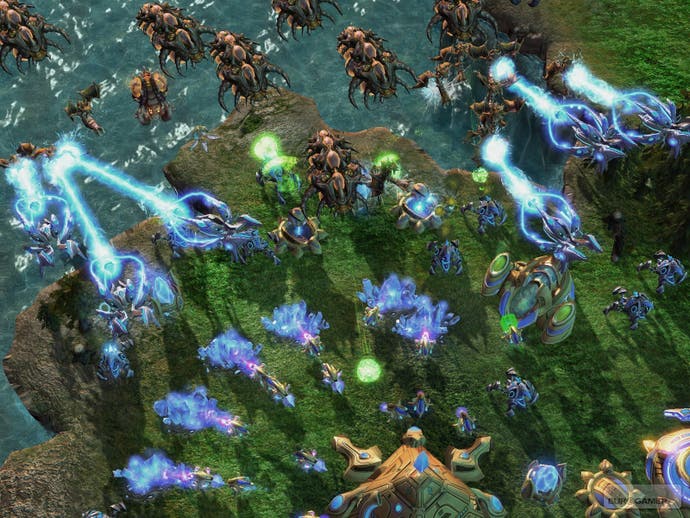Blizzard's Mike Morhaime
He runs the world's most successful developer. But what makes him nervous?
Mike Morhaime is the chief executive of Blizzard Entertainment, co-founded with his college buddies Allen Adham and Frank Pearce under the name Silicon & Synapse in 1991. Over the next 17 years it built a formidable name for itself in real-time strategy (Warcraft and StarCraft), action RPG (Diablo), and more recently massively multiplayer gaming, with World of Warcraft, the proverbial golden egg that has brought in 10 million subscribers. Blizzard is known for its perfectionism, its lengthy, iterative development process, its early embrace of online multiplayer gaming, and its staunch support of the PC and even Mac as gaming platforms.
Morhaime - small, quiet, thoughtful, cautious - is the man who has held Blizzard together through multiple changes of ownership (culminating in the current merger between Vivendi and Activision) : according to his operations chief Paul Sams, Morhaime has had eight bosses, but Blizzard's internal culture has remained unchanged throughout. We sat down with him at last weekend's Worldwide Invitational convention in Paris to talk about WOW, StarCraft II, the just-announced Diablo III, where the company stands on consoles, and what, if anything, gets him worried.
You mean taking a franchise into a new genre, kind of like we were going to do with StarCraft Ghost?
I think with each game that we create, we try to figure out what type of game we want to make, and then we think about what's the most appropriate franchise, the most appropriate setting for that game. We do it on a case by case basis.
For instance, World of Warcraft - I think the foundation for that idea probably dates back to after we released Warcraft II. We thought, wow, this would be such a great game to create a virtual world around, where you're a character inside the game and you can explore this fantastic universe. Technology finally advanced to the point where it was feasible to make the game. So, genre first, then franchise.

It does.
Well, I think we have a tremendous amount of players out there that we need to support. As long as people are wanting to play the game, I think we need to continue to support the game and evolve it.
I don't know. I don't know if anybody knows. But we look around, and we see that the gaming market is continuing to grow, the number of people that have broadband access and PCs capable of playing 3D games around the world is growing, and I don't see that slowing down any time soon.

Initially when we launched the game, there were certain bottlenecks in the server infrastructure that we did not recognise at first. It's very difficult to test for this sort of thing without getting the entire population that's going to play. Some things just don't appear until you have enough people on the system. It would have been great had we used our current platform back at launch.
I think the thing that's changed more than anything is just that the games have gotten bigger, so it takes more people, more time, more resources to generate content. There's always been pressure to release things quickly, it just takes more people to do that now. The other thing that's changed is - one of our goals at Blizzard is to be a global company, to be thinking about our player base around the world, and so when you add in all these other languages that we're trying to support, that also increases the amount of time that it takes to put out content.








